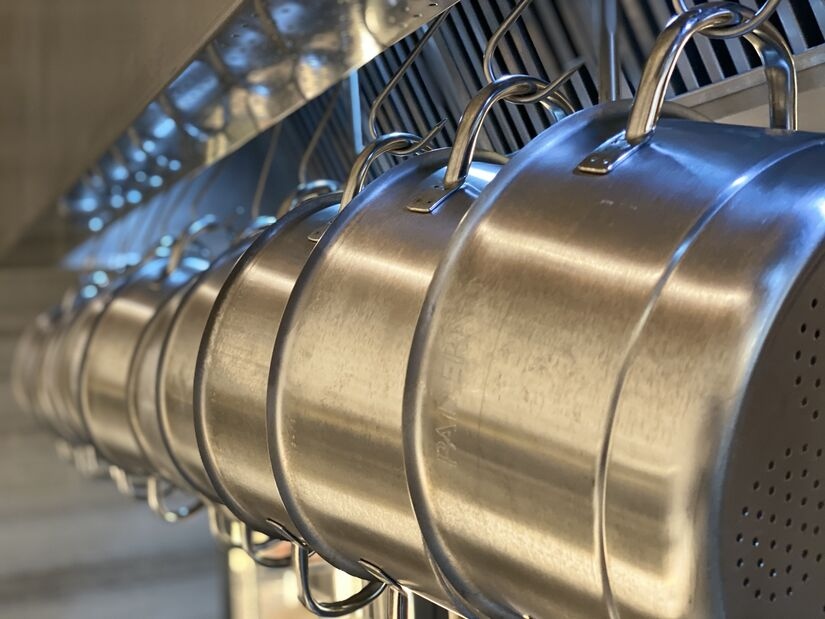Why should you care about your hotel boiler’s efficiency rating? For hotel owners, hot water is an essential part of the guest experience. Right up there with a clean, comfortable bed, guests expect a hot shower, a warm room, and comfortable amenities like pools and hot tubs. In other words, a lot is riding on your boiler system, so you need to know that it’s running efficiently.
Boilers Do a Big Job
Beyond the guest experience, boilers also do the crucial behind-the-scenes work of powering your laundry, kitchens, and cleaning. Truly, hot water is the backbone of your hotel.
Boilers are also one of the largest line items on your energy bill. For many hotels, hot water is at least 20% of the total energy consumption. That’s a big chunk of your budget and something to pay attention to. Even minor improvements in energy efficiency can mean significant savings.
It’s important as a hotelier or facilities manager that you understand boiler efficiency ratings so that you can make smart decisions and investments for your hotel. Understanding how your boiler converts fuel into heat helps you make better choices about upgrades, boiler maintenance, and long-term sustainability.
Boiler efficiency ratings are especially critical if you’re approaching the time for an update. Professional guidance is the key. When you work with a professional company like Reliable Water Services, we can help ensure that your water heating setup and size fit the needs of your business. In some cases, boilers are the best choice (especially if you have a boiler system already in place), but arm yourself with knowledge so you can feel confident when it’s time to make the decision.
An efficient boiler system makes a significant difference in both saving money and maintaining your hotel’s sustainability. A well-maintained boiler system will also help you reduce emissions and improve your compliance with environmental standards. In today’s world of conscientious consumers, your customers care about your reputation as an environmentally responsible hospitality provider. While steps like reusing towels and reducing laundry can help, making sure you have an efficient water heating system is one of the biggest ways to show guests that you actually care about sustainability.

What Is a Boiler Efficiency Rating?
The truth is, you don’t need a background in HVAC or plumbing to gain a basic understanding of equipment efficiency. If you own and run a hotel, bed & breakfast, lodge, spa, or any other type of accommodation, it’s wise to understand your equipment at least on a simple level. Then, you can rely on professionals to talk you through the rest.
The simplest way to understand a boiler efficiency rating is that it tells you how effectively your commercial boiler is turning fuel into heat. The number is typically reflected in a percentage.
For example, if a boiler has an 85% efficiency rating, that means 85% of the fuel is used for heating. The other 15% is lost through exhaust. By contrast, a 95% efficiency rating means only 5% is being lost. That leaves you with a significantly lower utility bill for the same amount of heat.
To measure boiler efficiency, professionals look at two metrics. The AFUE (Annual Fuel Utilization Efficiency) is used to measure seasonal performance over the year and for smaller boilers. Thermal Efficiency is more commonly used to measure large, commercial, and industrial boilers. This number reflects the boiler’s ability to steadily turn fuel into heat under controlled conditions.
For hotels and large operations, Thermal Efficiency is typically the more relevant way to measure boiler performance. Your boiler must run consistently to handle large, simultaneous loads.
So, what is a good efficiency rating? For a standard, non-condensing boiler, 80-85% is a good efficiency target. For a newer, high-efficiency condensing boiler, you may be looking at a 90-98% efficiency rating.
Condensing boilers get the highest ratings because they recover heat from exhaust gases (standard models simply release the exhaust). While a condensing boiler is an investment up front, it can lead to long-term energy savings — an attractive option for hotels that are new builds or those that are making significant updates. There may even be tax credits or energy rebates available for upgrading to high-efficiency equipment. Check with your local energy provider to find out if they offer any incentive programs for efficiency upgrades.
It’s best to discuss the differences with your installation professional. If you have an older boiler system, ask a boiler professional to evaluate its Thermal Efficiency and recommend the best path forward. A boiler professional can offer insight to make sure your boiler (at any age) is running as efficiently as possible.

Why Efficiency is Important for a Hotel
In the hospitality industry, everything comes down to the bottom line. The industry is competitive, and over time, your boiler’s inefficiency can cost you. If you can improve efficiency from 80% to 95%, you’ll significantly reduce fuel use, which can add up to thousands, maybe even hundreds of thousands, of dollars in savings over time for larger properties. Of course, the other reason you want your boiler to run efficiently is that it’s better for your boiler. Efficient boilers maintain steady temperatures. Steady temperatures mean no cold and fluctuating showers and spa water for your guests. And in this industry, reviews, loyalty, and guest satisfaction are everything.
Guests also care about green initiatives and efforts, especially if sustainability is part of your brand. An energy-efficient system will reduce your carbon emissions and demonstrate a commitment to environmental responsibility. If you have corporate ESG goals, boiler upgrades can be part of hitting those emission targets.
It’s also important to note that there may be efficiency minimum requirements for commercial equipment. Depending on your region, you may be able to get in under a legacy clause, but upgrading can qualify you for specific incentives, energy rebates, and sustainability certifications.
When it is time for you to update your boiler system, you can rest assured that newer, high-efficiency systems often pay for themselves from energy savings.

Common Boiler Inefficiencies
Even the best boiler underperforms if it isn’t sized for the job and well-maintained. It’s important to realize that your boiler usually doesn’t completely stop functioning; instead, it just slowly degrades over time, leading to lost efficiency.
Aging systems are a major source of underperformance. After about 15 years, the burners and controls are usually outdated. They may still be functional for quite a long time after that, but compared to modern models, they’re going to be significantly less efficient.
Sizing is another significant factor. Many hotels have boilers that are too large. When a boiler is too big for the job, it leads to something called short cycling (frequently firing on and off). Short cycling wastes fuel in periods of lower demand.
If a boiler isn’t zoned with individual room or area controls, you may also be heating spaces that are unoccupied. During your slower seasons, this may also cause a significant waste of energy.
Finally, boiler inefficiency can come from slacking on maintenance. A boiler needs to be well-insulated to prevent heat loss through pipes and tanks (or from the mechanical room itself). It should also be checked regularly for sediment buildup, dirty burners, faulty valves, or anything else that may degrade performance.
When you notice something is “off” with your boiler, don’t wait until it becomes an emergency. Address the issue early by contacting a professional like Reliable Water Services. Preventative measures can offer you savings even if it’s not time to overhaul or update your whole system.
Basic preventative measures such as improving insulation, scheduling professional cleaning, performing valve checks, burner tuning, and leak detection go a long way toward extending the lifespan (and the efficiency) of your commercial boiler system.
The right partner can help you get the most out of your boiler. For hotel owners, it’s essential to work with water heating professionals who understand the unique needs of the hospitality industry. Rely on their experience to help you navigate options and find the best solution for your business and your guests.
Your boiler is truly at the heart of your operation, and like a heart, you must care for it to keep the entire system running efficiently and safely. It’s worth the effort to enjoy lower costs, smoother operations, and above all, happier guests.
If you’re ready to evaluate your boiler efficiency and explore your options, contact Reliable Water Services today. We can help you take the next steps towards maximizing the efficiency of your commercial boiler.